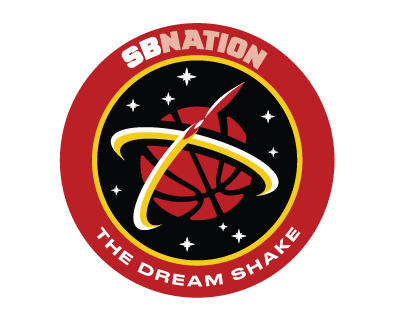/cdn.vox-cdn.com/uploads/chorus_image/image/48545387/usa-today-8397890.0.jpg)
When K.J. McDaniels was drafted in the second round of the 2014 NBA Draft he did the unthinkable by declining a four-year contract offer from the Philadelphia 76ers and signed a one year contract for $500,000.
McDaniels bet on himself. The fearless swingman wagered that he could impress NBA teams in a single season and land a long-term contract exponentially more valuable than a spendthrift four year offer from the 76ers. It worked.
Instead of being locked into a four-year contract valued at less than a million dollars annually, like former Rocket second round pick Chandler Parsons, McDaniels played a single season for half a million. He leveraged his play during that season into a three-year, $10 million contract from the Houston Rockets before the start of this season.
This past Saturday, McDaniels was once again betting on himself. He suited up in front of over 100 NBA scouts and front office personal for the Rio Grande Valley Vipers at the NBA D-League showcase.
The Rockets decision to send McDaniels to the Vipers on the Friday before a Saturday game in front every NBA team likely had the ulterior motive of showcasing the former second round pick for a trade. McDaniels didn't disappoint, posting 28 points and 10 rebounds while shooting 10 of 13 from the field and an uncharacteristic 5 of 8 from three. Like a high school senior in middle school dodgeball game, McDaniels looked like the NBA player on the court.
Even without the Saturday display, K.J. was already Houston's best trade asset. He's sitting on a still-undetermined level of potential and a thrifty contract made exceedingly reasonable thanks to the yet-to-be-negotiated collective bargaining agreement and eight-figure salary cap rise.
NBA teams still don't know what McDaniels is capable of. As a swingman without a three-point shot, there hasn't been space for him in the Rockets offense, but that hasn't necessarily diminished his value. You can see shades of DeMar DeRozan in McDaniels' offense and the physical tools to be a stopper in his unpolished defense performances. As a rookie with the 76ers, he won a starting role and posted 9 points a game while frequently cresting double digits, including a season-high 21.
In seven D-League games for the Rio Grande Valley Vipers, McDaniels has averaged 15.6 ppg and 8.3 rpg. These numbers are not mind-blowing, but his play has shown the tools necessary to be in an NBA rotation.
And at $3 million a season, McDaniels is worth betting on. The value of expiring contracts like Ty Lawson (or Dwight Howard) are at an all-time low due to the rising salary cap. The most attractive trade chips to rebuilding franchises are affordable contracts attached to players with upside, think Kyle Lowry before the Toronto Raptors, or players still attached to rookie contracts; almost anyone on the Utah Jazz.
Here's why McDaniels is a more valuable trade piece than other members of the Rockets...
Ty Lawson: Off-court issues drove Lawson's values into the dirt last season. On-court play has done the same for Lawson this season. It would take a very confused team in a serious bind to want Lawson for a playoff push and his value is probably greater as an expiring contract than a short-term contributor. The problem... The value of an expiring contract is at an all-time low due to the pending rise in the salary cap.
Dwight Howard: Stop. Just stop. Dealing Howard means the Rockets have given up on the season and they're currently a playoff team. Did I tell you to stop yet? Just stop.
Donatas Motiejunas: Like patient zero in a zombie movie, we still don't fully understand Motiejunas' ailment, when he'll be fully recovered or what was wrong in the first place. As a free agent to be, the injury is costing Motiejunas millions (perhaps to the Rockets' benefit in the long-term). Trading for Motiejunas would be akin to dealing for Goran Dragic last season. There'd need to be a spoken or unspoken understanding that a long-term contract will be tendered and signed in the upcoming offseason to make the trade worthwhile.
Terrence Jones: The argument can be made Jones is the most valuable trade chip the Rockets have. Jones plays with energy and has shown the ability to be a regular contributor in an NBA starting lineup. His trade value is diminished for two reasons. There's less known upside with Jones than with McDaniels, as we may have already seen T-Jones at his best. He's produced the most as an undersized power forward who skillfully finds easy baskets, shoots a decent rate from deep while playing solid defense against players his size and slowing down players bigger than him in the post. The main reason other teams would like McDaniels over T-Jones is the contract. McDaniels is locked down for this year and next at $3 million and has a player option for year three. T-Jones is a restricted free agent this offseason in a league where Enes Kanter is a max-contract player. That reality means Jones will likely be angling for a contract worth eight digits annually. Trading for Jones means your playoff team has been decimated by injury and you need short-term help or you want to make a healthy contract offer in a few months.
If the Rockets make a trade before the deadline, expect McDaniels to get dealt.
